
Policymaking Under US Sanctions
The editorial of Donya-e-Eghtesad asks that if for some reason, there are no changes in US sanctions in the short run, how can the economic damage be reduced under US sanctions and how can the economic crisis be prevented?
There are short-term and long-term impacts of US sanctions. The most important short-term impact of the sanctions is a drop in oil exports resulting in a decrease in oil revenues and a larger budget deficit. Also, among other short-term impacts of US sanctions, we can mention a decrease in foreign non-oil trade, a decrease in the country’s currency revenues, increased political instability and further market instability over the past two years.
The important point here is that many of the government’s current policies are in contradiction with what is required to confront US sanctions. With a continuation of the current policies, they are likely to result in a severe budget deficit, high inflation, instability in the markets, a drop in investment, and a recession in manufacturing.
Nevertheless, if the current policies and practices are changed and real reforms are implemented, the impacts of US sanctions, at least in the short term, can be reduced and widespread crisis and instability can be prevented.
As a result of US sanctions, the government’s revenues have decreased, and the government is facing a mounting budget deficit. The issue is sensitive because foreign sanctions have suddenly decreased government revenues, making it impossible for the government to adopt any structural reform initiatives when forming its financial and budget plans. Instead of undertaking financial reform, the government has implemented measures that will create the grounds for an increase in inflation in the future.
If policymakers want to decrease economic damage due to US sanctions, they must give priority to two issues: 1) economic stability and 2) avoiding any disturbance in the markets.
It can be said that even though sanctions will result in long-term impacts with weakening economic growth capacity, economic damage can be reduced by undertaking financial and budget reforms, thus preventing crisis and instability in the economy.
Workers and the Sad Story of Their Wages
As we get closer to the beginning of Iran’s new year (starting on March 21), the issue of determining minimum wages for workers is once again raised. The editorial of Tejarat Online explains why the minimum wage is not enough to provide for workers’ expenses, which is why the majority of them live below the poverty line.
Each and every year, as we get closer to the end of the year, trilateral negotiations involving worker representatives, employers and the government over wages occur and become one of the most important concerns of Iranian workers.
During the past few years, as expenses increased and incomes decreased, these meetings were sometimes filled with tension, resulting in endless arguments between the workers’ and employers’ representatives.
Due to new disagreements over how to set wages and the criteria for determining livelihood baskets and the inflation rate, meetings held for setting wages for the upcoming year usually drag into the new year. The root cause of the differences can be found by analyzing the views of workers and employers regarding wage determination.
Workers hold that the set wages must be in line with their livelihood basket which, for example, in 2019 was set at 3,760,000 tomans. This basket is an aggregate price of some essential goods and household expenses and is one of the most important indexes for determining wages each year.
A look at the significant difference between the livelihood basket and the minimum wage in 2019 – set at 1.5 million tomans – indicates the difficulty workers are experiencing. The sad truth is that in Iran the majority of workers – despite their long record of work – receive minimum wages due to their three-month contracts.
To understand the difficulty that workers are facing, one must know that the poverty line is set at 2,728,000 tomans, according to the Parliament’s Research Center. As such, the majority of Iran’s 13 million workers live below the poverty line.
This year too, the employers’ representatives stress that production costs are high due to inflation and US sanctions, thus disagreeing with the demand to increase wages to address declining purchasing power.
Economic Security is the Missing Link of the Economy
The editorial of Jahan Sanat explains how a lack of economic security in Iran is the main obstacle to economic prosperity and growth.
These days all Iranians agree that the country’s conditions are not good. Conversations among Iranians and their behavior in the street indicate their high level of dissatisfaction. According to polls, after the November protests, less than 20 percent of the people are satisfied with the current conditions and most young people think the November protesters were right.
The judgement of the people in this regard is significantly contradictory: on the one hand, they are upset with the current conditions; on the other hand, they have no hope in the street protests improving their conditions. Today people are suffering from economic insecurity.
From an economic perspective, this is because of massive turbulence within Iran’s macroeconomy. Consecutive fluctuations in the currency market and the inflation rate have resulted in instability and indecision.
The other factor that has destabilized the economy is the mounting US sanctions over the past two years, which have manifested in different forms. Also, ineffective economic policy making within the country has fueled the insecurity.
Economic security is a great social capital and its absence is a great obstacle to economic activity including the creation of prosperity and progress in the country. As for the macroeconomy, inflation must be controlled, and the currency rate must be fixed. On the other hand, there must be a solution for Iran’s weakened relationship with the international community and the issue of US sanctions.
As a result of the current conditions and the country’s economic prospects, there is no motivation to invest in development and job creation. Instead, people invest their money in the gold or currency market or take it overseas.
Under these circumstances when indecisiveness in economic policy making is apparent and improper conditions are the main obstacles to economic growth, it shouldn’t be conveyed to the public that abrupt decisions are part and parcel of the government’s policy making, as this would weaken public trust in policy makers and increase public dissatisfaction.
Opportunity of the Deal of the Century and the Issue of Iran Pulling out of the NPT
The editorial of Arman Melli views the so-called US “deal of the century” as a diplomatic opportunity for the Islamic Republic which can be exploited to decrease pressures on Iran.
In recent days, the motion for Iran exiting the Non-Proliferation Treaty (NPT) was submitted to the Parliament. Iranian lawmakers announced that if ratified, the government and the Foreign Ministry are bound to report to them about Iran pulling out of the NPT within two weeks of referring Iran’s case to the UN Security Council.
Iran’s threat to pull out of the NPT can be seen from different perspectives. The first issue is how this move will impact Iran’s relations with the European countries. The evidence shows that the Islamic Republic shouldn’t be particularly concerned about Iran-Europe relations. Europe willingly or unwillingly has stopped constructive cooperation with Iran.
Also, with anti-Western currents becoming stronger in Iran, even if Europe wants to cooperate with Iran, there are too many obstacles. If Iran’s case is referred to the UN Security Council, the JCPOA is destroyed and all previous resolutions against Iran will be re-activated. By refusing to cooperate with the IAEA, others will see the Islamic Republic’s nuclear activities as not peaceful, no matter how much Iran insists otherwise.
Now that Donald Trump has announced Netanyahu’s plan for the “deal of the century” which has faced criticism from all countries, Iran can use public diplomacy to alleviate US pressures.
The Parliament’s motion has not been ratified yet, and even if ratified, it is highly unlikely that the government will implement it. When America and Israel are cooperating with one another concerning Israel’s right of existence in the region, Iran must take new initiatives to mobilize the Islamic countries against the “deal of the century.”
In the current anti-American atmosphere, the Islamic Republic shouldn’t talk of exiting the NPT as America can take advantage of it and use it against Iran.

The “Defenders of the Holy Shrines” Took Part in Suppressing the November Protests in Iran
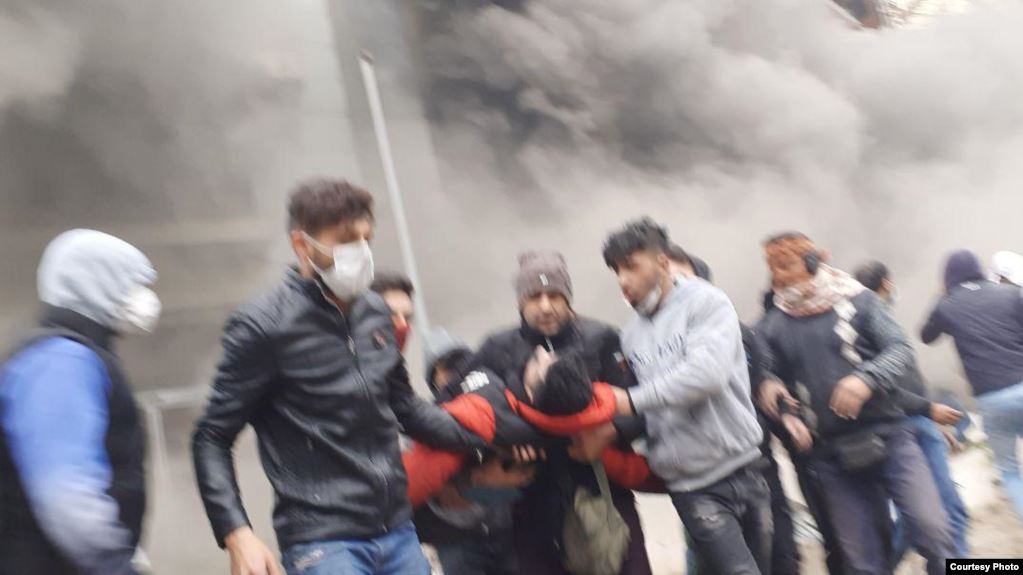
The website of the “Holy Shrine Defender” has published a statement claiming that its forces participated in the crackdown on the protests held during November 2019: “We see that some government officials still send the holy shrine defenders to the frontlines of fights with their own people without accepting any responsibility.”
The text continues that as Iran’s November protests turned violent, a number of the “Holy Shrine Defenders” had to take action and unfortunately some of them such as Morteza Ebrahimi were martyred.
This text also criticizes the government’s “mismanagement” while complaining about the way these “defenders” are deprived of some services and face problems regarding their salaries and benefits. The officials should not be allowed to evade their responsibility and sacrifice the “Holy Shrine Defenders”, says the text.
According to ISNA, Morteza Ebrahimi, commander of the Imam Hossein battalion, was killed in a district in Tehran during the people’s protests in November 2019.
Journalists Ordered not to Report on the Continuation of Flights Between Iran and China
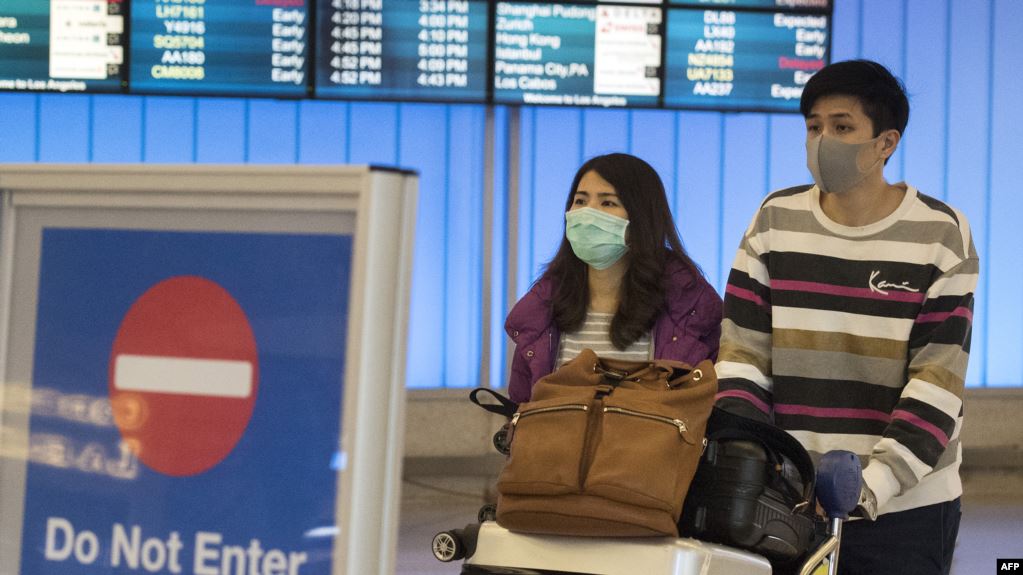
A journalist working for Shargh daily in Tehran has said that the media in Iran was ordered not to report on the continuation of flights between Iran and China.
Shokoufeh Habibzadeh wrote on her Twitter account that Mahan Air is currently carrying passengers between Iran and China despite the deadly coronavirus and “without giving a hoot about people’s lives.”
The Iranian Health Minister had previously announced a temporary ban on all flights to and from China due to the coronavirus outbreak. However, a parliamentarian said that flights between Iran and China continue in spite of the ban. Bahram Parsaei, a member of the Parliament’s Article 90 Committee, added that these flights were supposed to carry Iranians and students from China to Iran, but we now see that Iranian airlines are transferring Chinese passengers from other countries.
Parsaei also pointed out that even Turkey, whose main income is from tourism most of which comes from Chinese tourists, has cancelled all its flights to and from China despite suffering losses of millions of dollars.
Rouhani Expresses Concerns Over Iranians Being Discouraged From Going to the Polls in Iran
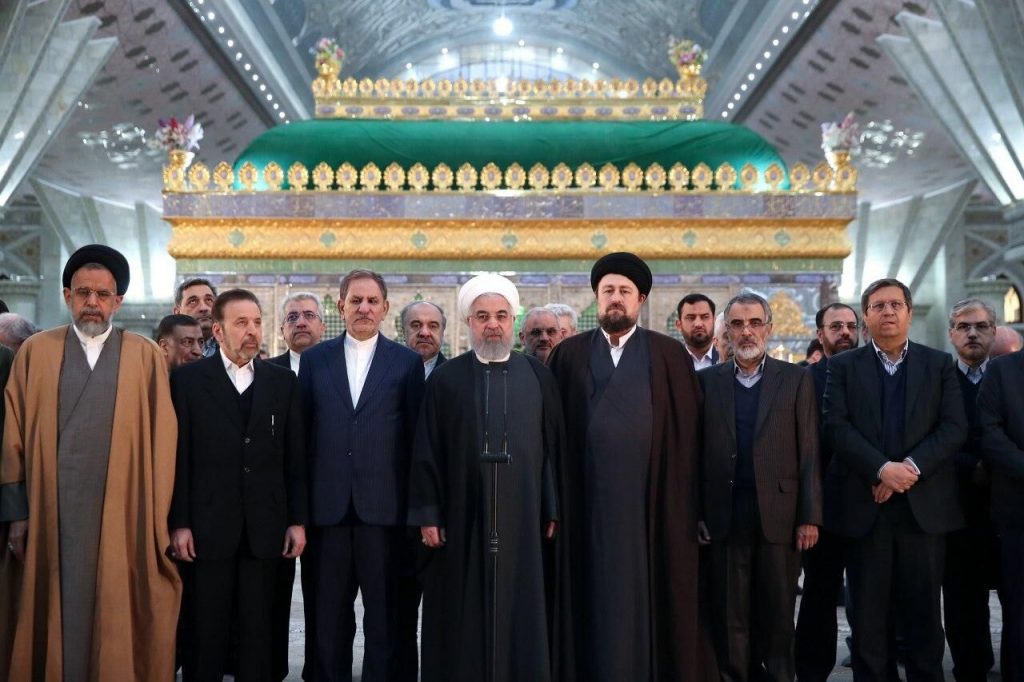
President Hassan Rouhani said that whoever discourages people from going to the polls is straying far from the path of Imam Khomeini. Speaking on the anniversary of the 1979 Islamic Revolution, Rouhani pointed out that Imam Khomeini always emphasized that people should participate in all elections. “He knew that if people were not present on the scene, there would be no victory.”
Rouhani underscored that with the people being absent, we cannot be successful. He added we should respect public views in all our policies, including domestic, foreign, economic and cultural policies. “People’s opinions, beliefs, thoughts and tastes should not be forgotten,” he asserted.
Rouhani also remarked that if we continue on Imam Khomeini’s path, we can overcome the difficulties that we are going through – the hardest economic and political times for our country.
President Rouhani made these remarks close to Iran’s upcoming parliamentary elections which are to be held on February 21, 2020.
IRNA (Islamic Republic News Agency)
An Iranian Lawmaker Interrogated for Comments She Made as a Parliamentary Member
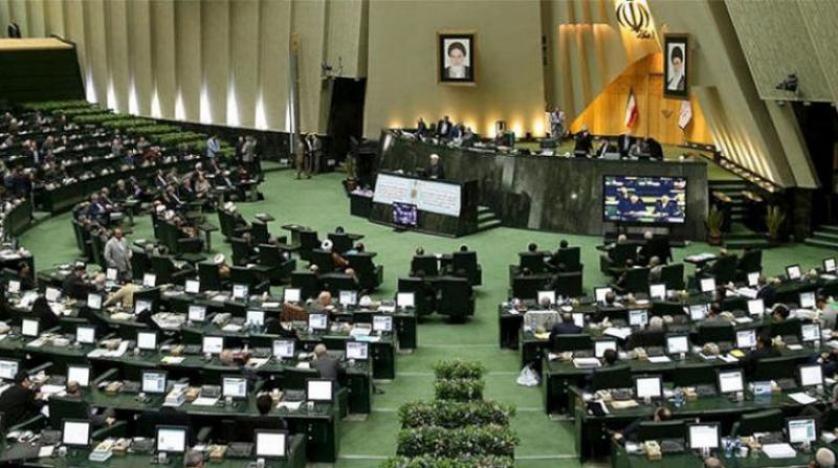
Lawmaker Parvaneh Salahshouri said that she was summoned to court after a complaint was filed by the Islamic Revolutionary Guard Corps and some other authorities. She said the hardest part of it was when “I was interrogated only for my comments in defense of the people’s rights as a parliament member.”
Salahshouri added that her summons was “illegal” according to Articles 84 and 86 of Iran’s Constitution.
Salahshouri has made some controversial remarks in the past. Recently, she slammed a “full-fledged and unruly tyranny” in the Islamic Republic’s establishment, saying “the republicanism of this establishment has turned into centralization.”
Criticizing some parallel institutions in the country, Salahshouri asked: “How many governments? How many intelligence offices? How many parallel institutions?” She further stated that Iran has a “dual sovereignty which evades accountability and manages the country by constantly saying it wasn’t me!”
Pointing to Iran’s November protests, Salahshouri said she cannot tolerate the killing of the youth of her homeland. She said that “people voiced their protests but were answered – young and old – with bullets and arrests.” They were only after a job and a good life, added Salahshouri.
This lawmaker had previously announced that she would not participate in Iran’s upcoming parliamentary elections due to what happened during the November protests in Iran and because of the presence of structures which restrict the Parliament’s authority, such as the Guardian Council’s approbatory supervision.
Is China Going to Stop Importing Oil From Iran?
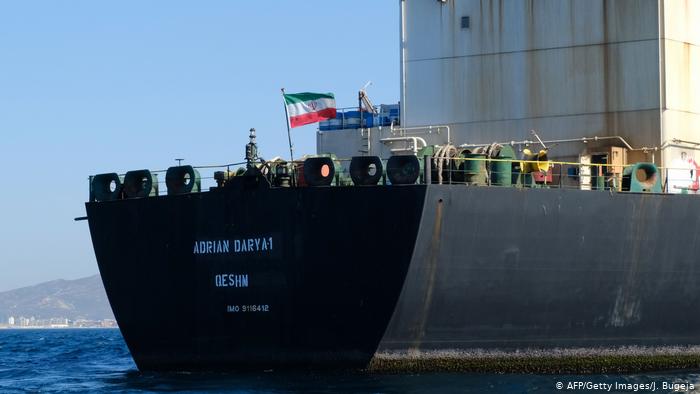
A new report by China’s General Administration of Customs on oil imports during 2019 shows that oil purchases from Iran were halved during the last year. But the important point is that in December, China bought 100,000 bpd which is seven times less than the amount before the imposition of US sanctions.
According to newly released statistics, China purchased 295,000 bpd of Iran’s oil in 2019, a 50 percent drop compared to 2018 and a 60 percent reduction compared to 2017.
The statistics show that after the United States ended its oil waivers in May last year, China sharply decreased its purchases of Iranian oil which in December dropped to 100,000 bpd.
China is Iran’s biggest trade partner and is the only country which has continued to buy Iran’s oil despite US sanctions. According to reports, however, large amounts of oil exported from Iran to China were for paying the debts of Iran’s National Oil Company to Chinese companies like CNPC.
If in 2020 China keeps its oil imports from Iran at the level of last December – i.e. 100,000 bpd – it means that it has stopped buying Iran’s oil, because these imports will merely cover Iran’s debts to Chinese companies and Iran will receive no money for this.
Recently America and China signed a trade contract to end the tariff war between them, which will require China to buy more US goods worth up to $52.4. billion. In addition, part of the contract includes China buying American oil and gas.
